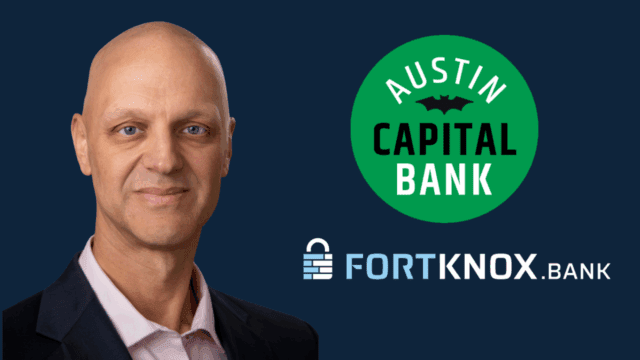“All of the banks we talk to, for the most part, live and die by their spread. And I will tell you right now – same bank, same management, same yield curve, same products – 20 years ago kicks its butt on a spread perspective. It’s not even close. The business has been commoditized.”
Scott Hildenbrand, Head of Piper Sandler Depository Fixed Income and Chief Balance Sheet Strategist, joins Travillian co-hosts Brian Love, Head of Banking & Fintech Search, and Michael Perito, Head of Bank Strategy, to talk about why traditional playbooks aren’t working anymore and what kind of leadership banks need going forward.
He shares what he’s hearing in boardrooms across the country: M&A is stalled, balance sheets are still upside down, and and CFOs are under growing pressure to move faster and think more strategically. That’s why the demand for strong CFO talent, and the recruiting behind it, is more critical than ever. He also breaks down where AI fits into all of this and why too many board meetings still feel like “dentist appointments”.
Available now on Apple Podcasts, Spotify, or read the full summary with timestamps below.
APPLE PODCASTS | SPOTIFY
(00:00 – 02:01) State of the Industry: From ‘Funeral’ to ‘Concert’
Scott opens with a vivid contrast between the 2023 and 2024 banking landscape. What once felt like an industry funeral has shifted to optimism, driven by expectations of regulatory reform, rate cuts, and renewed M&A activity. Yet despite some positive momentum, structural challenges and volatility persist.
(02:01 – 06:12) Regulatory Pressure and the M&A Bottleneck
The much-anticipated regulatory reform hasn’t meaningfully improved the day-to-day for banks, particularly in exams and liquidity testing. However, M&A deal timelines have shortened, which is a rare win. Still, most banks are stuck: underwater on balance sheets, nervous about restructuring, and unsure how to communicate risk to boards and regulators.
(06:12 – 10:00) Hedging Chaos and Capital Markets Triage
Scott flags a surprising 50/50 split in hedging activity: half of banks hedge for rising rates, half for falling. That divergence reveals how uncertain the landscape is. Banks also face tough decisions about refinancing debt issued in 2020–2021. Every decision, whether to roll it, refinance it, or call it, has regulatory and investor consequences.
(10:00 – 12:34) Securities Restructuring and Refinance Risk
A wave of securities restructurings followed the 2024 NEXT Forum, but has since slowed. Scott predicts a year-end spike, especially as boards grow weary of sitting on losses. He also points to underappreciated refinance risk on the asset side, where lower rates could erase yield improvements made over the past few years.
(12:34 – 16:48) The New CFO: Strategic, Nimble, and Hungry
The role of the CFO in banking has transformed. Today’s top candidates need to be proactive, cross-functional thinkers who understand margin, balance sheet risk, and strategic execution. Scott emphasizes the need for CFOs who don’t just manage risk, they act on it before they’re told to.
(16:48 – 21:17) Boards Need to Get Uncomfortable
Scott challenges banks to rethink boardroom dynamics. Too often, critical topics are avoided because they’re messy or controversial. Great CFOs should be hearing “no” in the boardroom. It means they’re pushing the envelope. But that only works when boards are educated enough to engage meaningfully.
(21:17 – 24:33) AI in Banking: Less Buzz, More Utility
Scott sees the biggest short-term AI opportunity in analytics, not in headline-grabbing use cases. AI should reduce the grunt work so teams can spend more time strategizing and communicating. He predicts the rise of the Chief AI Officer as a C-suite standard within the next few years.
(24:33 – 28:00) What’s Next: Valuations, Restructurings, and M&A Momentum
Despite being a self-described pessimist, Scott feels bullish on the second half of 2025. M&A will slowly ramp up as balance sheets get cleaned up, valuations improve, and boards gain confidence. He expects a wave of restructurings before year-end and a very different landscape going into 2026.
Looking to strengthen your executive team or explore your next leadership move? Connect with Brian Love to talk banking, fintech, and the future of talent: blove@travilliangroup.com.












